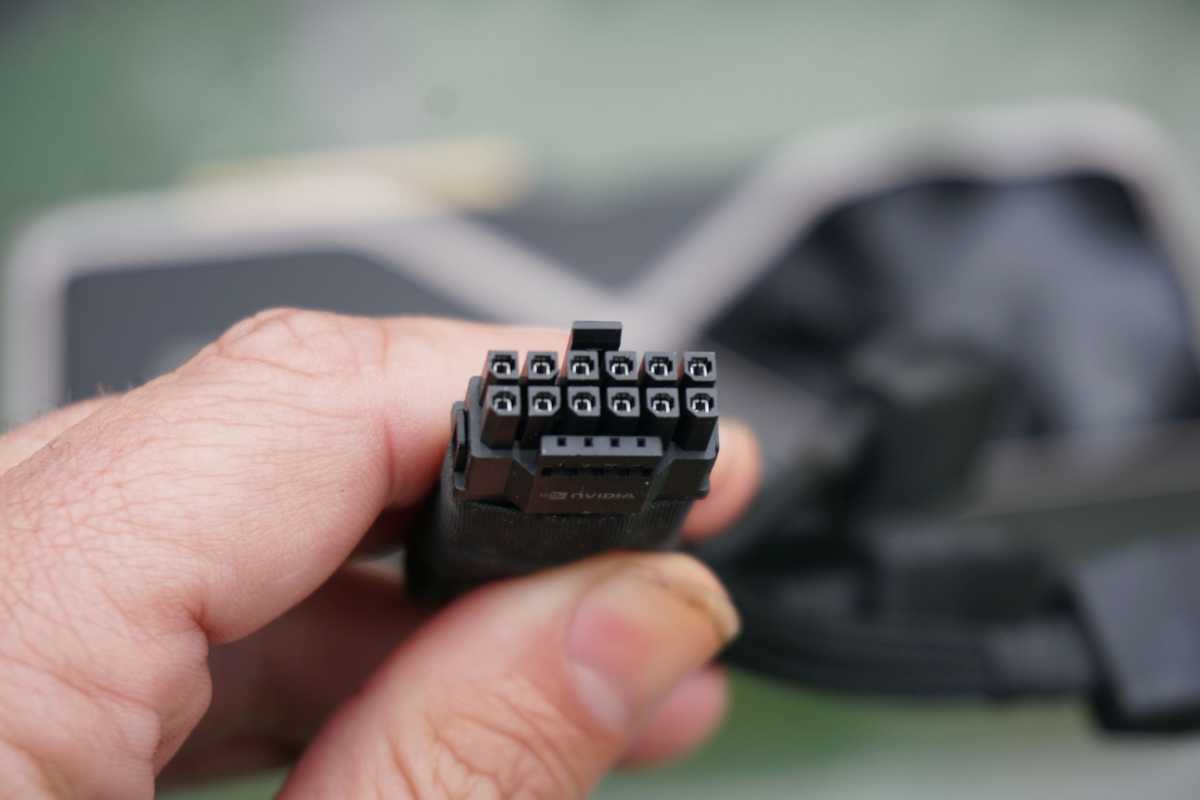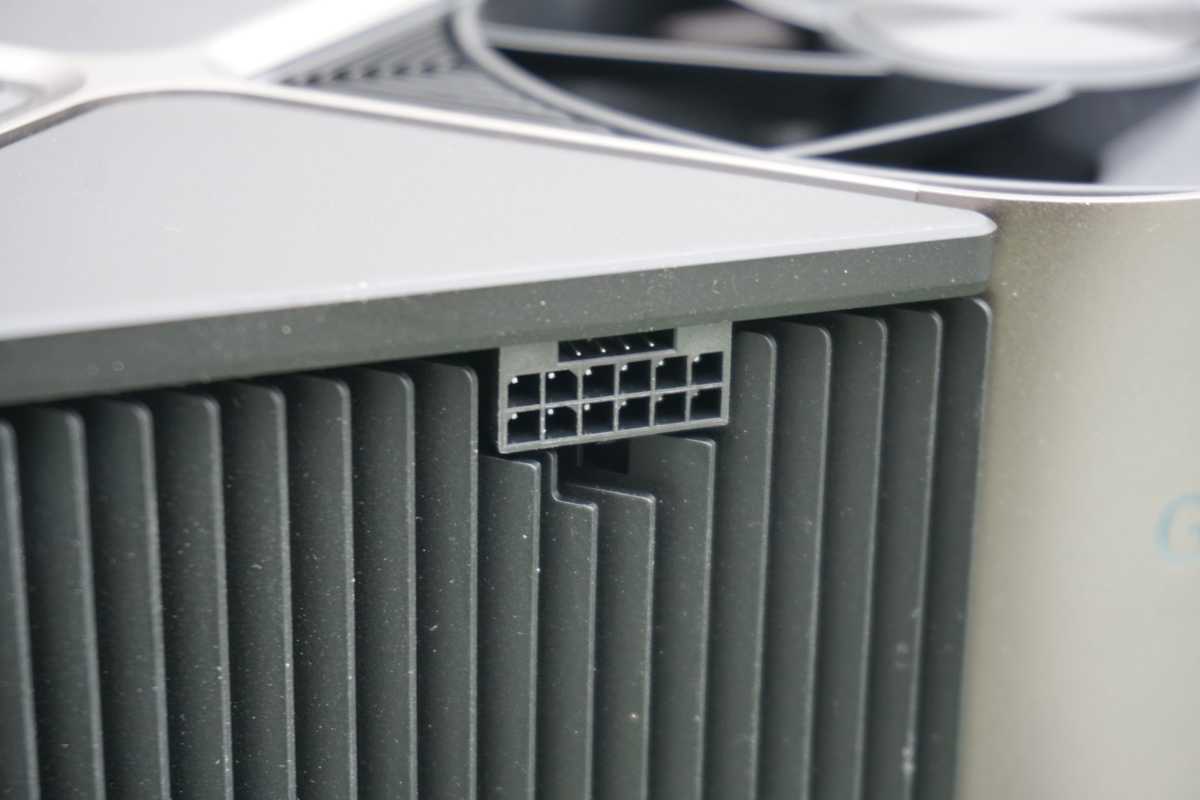Nvidia finally broke its silence and says improperly seated 12VHPWR connectors are largely to blame for those GeForce RTX 4090 power cable meltdowns.
The company, which thus far has been mum other than to confirm it was investigating the problem, issued a statement to Gamers Nexus that also confirmed how many cases it knows of.
“We are actively investigating the reports. We are aware of about 50 cases globally,” a company spokesperson told Gamers Nexus editor-in-chief Stephen Burke, according to a video Gamers Nexus posted to its YouTube channel Friday morning.
“Our findings to date suggest that a common issue is that connectors are not fully plugged into the graphics card,” Nvidia told Burke. “To help ensure the connector is secure, we recommend plugging the power dongle into the graphics card first to ensure it’s firmly and evenly plugged in, before plugging the graphics card into the motherboard.”
Nvidia officials also told Burke that returned cable adapters all appeared to show wear damage indicating they weren’t fully seated. The company also posted its statement on its customer help page where it shows what a properly inserted cable looks like.
Nvidia’s statement largely seems to back up what Burke and his team discovered yesterday: An excessively loose 12VHPWR connector in the GPU can lead to high temperatures which melts the connector.
In the Gamers Nexus investigation, the failed connectors Burke obtained often had physical damage, indicating the plug had largely backed out of the GPU. Gamers Nexus also largely concluded that debris from manufacturing, as well as debris caused by consumers possibly inserting and removing the connector, could possibly cause the RTX 4090 cables to melt but the most likely cause was a loose connector.
Others, including Techlab.net.br’s Ronaldo Buassali and Jon Gerow, Director of Research at Corsair, had done their own testing previously and concluded the connector is well able to handle the current being pushed through it—so long as it is fully connected.
Of course, the lingering question is whether the improper insertions stem from an underlying connector design issue or not. With evidence now clear that the cable is capable of supporting the power behind it, many are wondering if the latch could be improved or not.
Nvidia officials did tell Burke that “We are investigating additional ways to ensure that the connector is secure before powering on the graphics card.”

Brad Chacos/IDG
Other ideas have been floated, such as having the cards refuse to post if the sense pins on the plugs are not fully seated. The PCI-SIG group, in fact, has been said to be considering design changes to the new plug.
Nvidia also responded to concerns by consumers that it would not honor warranties if a consumer uses a “third-party adapter” 12VHPWR connector, such as the custom and modded right-angle cables people are buying in hopes of avoiding a melted connector. That raised concerns Nvidia and board partners would then not honor a warranty if the native 12VHPWR connector on a new PSU was used.
In a statement released to PCWorld a company spokesperson said the concern was unwarranted. “NVIDIA and our partners are committed to supporting our customers, regardless of the cable or power supply used,” an Nvidia spokesperson said.
Perhaps more importantly, Nvidia also told Nexus Gamers that it and partners would honor RMAs from cards damaged by improper insertion. “Anybody who has an issue [relating to this] will be taken care of,” the company told Burke. “We’ll expedite an RMA.”

Brad Chacos/IDG
So how many GeForce RTX 4090 cards suffered from melting connectors? Gamers Nexus reports that board partners have told it 125,000 GeForce RTX 4090 cards have been sold, which would put the known failure rate at 0.04 percent, Burke said.
The statement comes a day after a GeForce RTX 4090 owner apparently filed a class-action suit against Nvidia over the melting connectors, according to a report in Tom’s Hardware.
Lucas Genova filed his suit on Nov. 11 and alleges that Nvidia “marketed and sold the RTX 4090 with a defective and dangerous power cable plug and socket, which has rendered consumers’ cards inoperable and poses a serious electrical and fire hazard for each and every purchaser.”